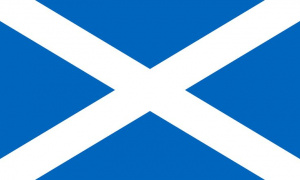Language/Scottish-gaelic/Grammar/Negating-Sentences
Introduction
In this lesson, we will learn how to negate sentences in Scottish Gaelic. This is an important aspect of any language, as it allows us to express negative thoughts and ideas. Being able to negate sentences will also give you a better understanding of Scottish Gaelic grammar. Let's get started!
Negation Words and Phrases
In Scottish Gaelic, there are several words and phrases you can use to negate a sentence. The most common are "cha" and "chan eil." These translate to "not" and "is not," respectively.
For example:
| Scottish Gaelic | Pronunciation | English |
|---|---|---|
| Chan eil mi toilichte. | [xan ɛl mi tʰɔliçtʲə] | I am not happy. |
| Cha do sheall thu an film. | [xa dɔ hʲoːəl hu ən fʲiɫm] | You did not watch the movie. |
| Chan eil e sgìth. | [xan ɛl ɛ ʃkiʰ] | He is not tired. |
As you can see in the examples above, "cha" is used to negate the verb in the sentence, while "chan eil" is used to negate the presence of the verb.
Another negation word used in Scottish Gaelic is "nach eil," which means "is not." This is used in sentences that begin with a question word, such as "who," "what," "where," "when," and "why."
For example:
| Scottish Gaelic | Pronunciation | English |
|---|---|---|
| Nach eil thu dèanamh do phòsaid? | [nɐx ɛl hu tʰjɛ̈nəv tʰɔ pɔʃatʲ] | Are you not doing your homework? |
| Nach eil iad a' dol dhan taigh-beag? | [nɐx iətʰ ə to̜l tʰan tʰɛ̈k pajk] | Are they not going to the cottage? |
You can also use "gun" and "gun robh" to negate a sentence. "Gun" means "without" and "gun robh" means "that was not." These words are often used to express negative thoughts related to someone or something not being present.
For example:
| Scottish Gaelic | Pronunciation | English |
|---|---|---|
| Tha mi gun chàirdean. | [ha mi kʰun xaːrtʲɛn] | I am without friends. |
| Nach eil e ann gun robh iad a' tighinn a-nis? | [nɐx ɛl ɛ an kʰun rɔv iətʰ ə tʲijɪn əniʃ] | Is he not here, that they were coming now? |
Finally, "cha bhi" is used to negate the future tense of a sentence. This translates to "will not be."
For example:
| Scottish Gaelic | Pronunciation | English |
|---|---|---|
| Cha bhi mi ann an Dùn Èideann a-màireach. | [xa vi mi ən an ɤunˠ ˈɛdʲən amɑ̃ːrɛx] | I will not be in Edinburgh tomorrow. |
| Cha bhi an t-uisge ro theòinte a-màireach. | [xa vi ən tʲuʃkʲə ro ho̜nʲtʲə amɑ̃ːrɛx] | The water will not be too hot tomorrow. |
Remember that negation words and phrases typically come before the verb in a sentence.
Negating Questions
To negate a question in Scottish Gaelic, you simply add the negation word at the beginning of the sentence, as shown in the examples above. However, if the question begins with a verb, you must insert "nach" before the verb.
For example:
| Scottish Gaelic | Pronunciation | English |
|---|---|---|
| Nach do chòrd e riut? | [nɐx dɔ xoːɾtʲ ɛ ruətʰ] | Did he not please you? |
| Nach eil thu dèanamh do phàrantan? | [nɐx ɛl hu tʰjɛ̈nəv tʰɔ pʰaːrən̪t̪ən̪] | Are you not doing your parents' bidding? |
Summary
Negating sentences in Scottish Gaelic is a straightforward process that involves placing negation words and phrases before the verb in a sentence. Some common negation words and phrases include "cha," "chan eil," "nach eil," "gun," "gun robh," and "cha bhi." To negate a question, simply insert the negation word or "nach" at the beginning of the sentence. Practice negating sentences to gain a better understanding of Scottish Gaelic grammar.

